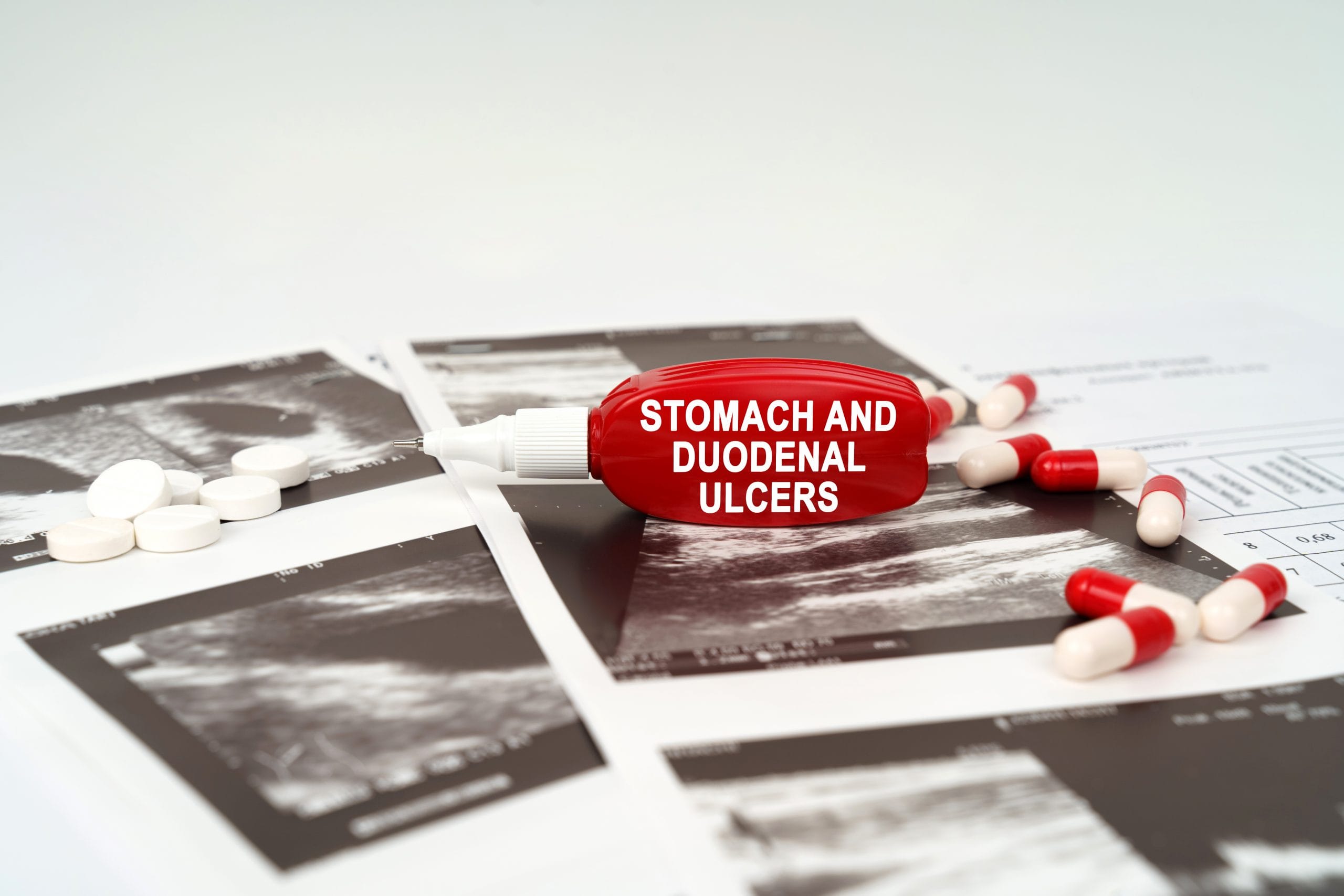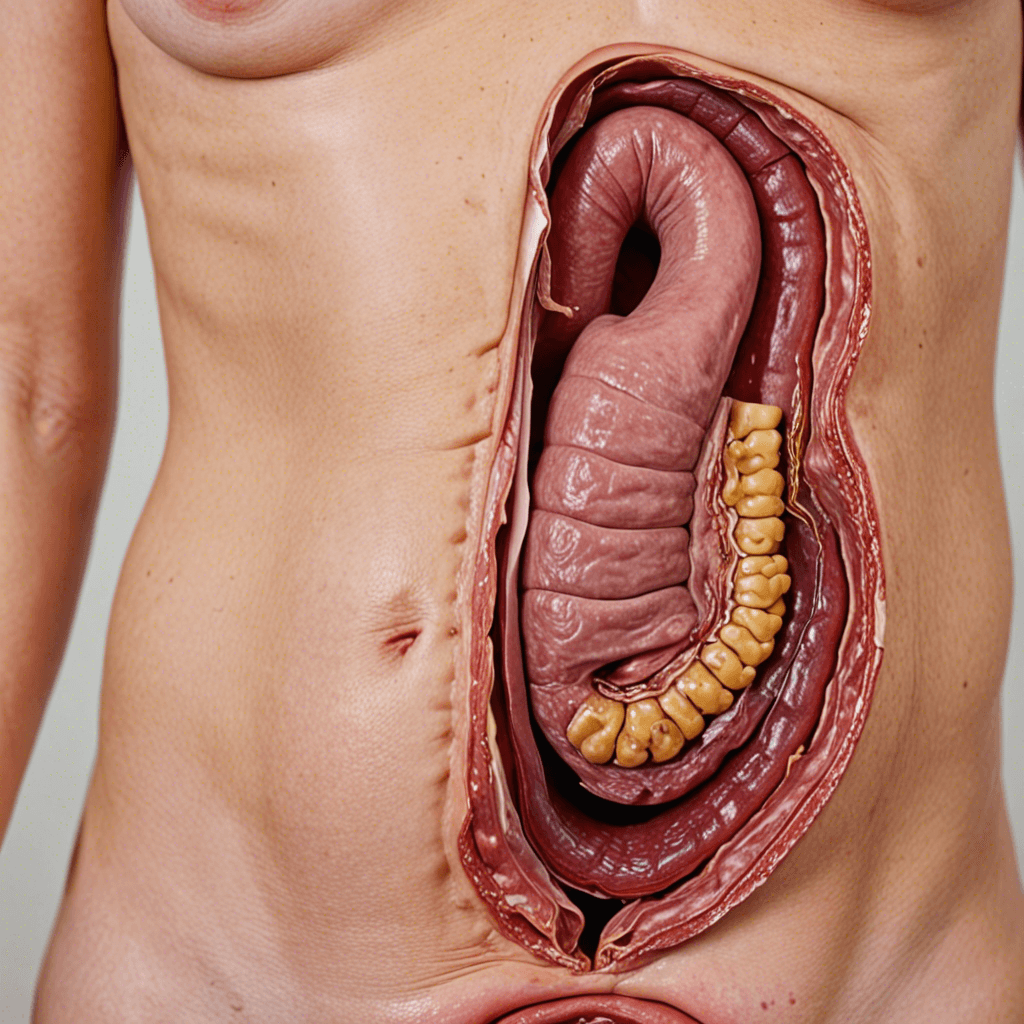
Duodenal ulcers are a widespread condition characterized by lesions within the duodenum, the first section of the small intestine. These ulcers can significantly impact quality of life, causing a spectrum of symptoms ranging from mild discomfort to serious gastrointestinal complications.
This blog explores the nature of duodenal ulcers, their causes, symptoms, and available treatment options for effective management.
Understanding Duodenal Ulcers
Duodenal ulcers are a specific type of peptic ulcer disease, which encompasses ulcers in both the duodenum and stomach. Unlike gastric ulcers (stomach ulcers), duodenal ulcers develop in the duodenum, just beyond the stomach. A clear understanding of these ulcers is vital for effective treatment and preventing complications.
Causes of Duodenal Ulcers
Two primary factors are most commonly linked to the development of duodenal ulcers:
Helicobacter pylori (H. pylori) infection
This bacterium can colonize the stomach lining, triggering inflammation and ulcers in both the stomach and duodenum. H. pylori is a prevalent cause of duodenal ulcers, often contracted in childhood and persisting without symptoms until adulthood.
Nonsteroidal anti-inflammatory drug (NSAID) use
Regular use of NSAIDs, such as aspirin and ibuprofen, can irritate or damage the lining of the stomach and duodenum, increasing the risk of ulcers. NSAIDs work by reducing a substance that protects the stomach lining from stomach acids.
Symptoms of Duodenal Ulcers
The symptoms of a duodenal ulcer can vary significantly between individuals, with some experiencing no symptoms at all.
Common presentations include:
- Burning or gnawing pain in the upper abdomen, which may improve with eating or worsen on an empty stomach
- Bloating, belching, or feeling full
- Heartburn and indigestion
- Nausea or vomiting, sometimes containing blood
- Weight loss and decreased appetite
If you experience severe symptoms such as sharp, sudden stomach pain, bloody or black stools, or bloody vomit, seek immediate medical attention as these could indicate complications like bleeding.
Diagnosing Duodenal Ulcers
If a duodenal ulcer is suspected, your healthcare provider will likely recommend tests to confirm the diagnosis and identify the underlying cause.
These tests may include:
- Endoscopy: A thin tube with a camera is inserted through the mouth to visualize the stomach and duodenum.
- H. pylori tests: These can involve blood, breath, stool, or tissue samples.
- Imaging tests: X-rays or other imaging techniques may be used to visualize the ulcer.
Treatment Options for Duodenal Ulcers
Treatment for duodenal ulcers aims to achieve several goals:
- Relieve pain
- Promote ulcer healing
- Prevent complications
- Avoid recurrence
Common treatment strategies include:
Medications
- Proton Pump Inhibitors (PPIs): These medications significantly reduce stomach acid production, aiding in ulcer healing.
- H2-Receptor Antagonists: Another class of medication that reduces stomach acid production.
- Antibiotics: If H. pylori infection is present, a combination of antibiotics is used to eradicate the bacteria.
- Antacids and Other Medications: These medications can provide symptomatic relief by neutralizing stomach acid or protecting the stomach and duodenum lining.
Lifestyle Changes
- Avoiding NSAIDs if possible
- Limiting spicy foods, alcohol, and caffeine intake
- Smoking cessation
- Stress reduction techniques such as yoga, meditation, or counseling
Recommended Reading: Comprehensive Guide to Managing GERD: Effective Treatments and Lifestyle Changes for Lasting Relief
Focusing on managing risk factors and making healthy lifestyle choices can help prevent duodenal ulcers. Regular check-ups, especially for those at higher risk, can aid in early detection and prevent ulcer development.
Conclusion
Understanding what a duodenal ulcer is, recognizing its symptoms, and knowing the available treatments can empower individuals to seek appropriate care and make informed decisions about their health.
If you suspect you have a duodenal ulcer, consult with a healthcare provider for a proper diagnosis and treatment plan.
Remember, with timely and appropriate intervention, duodenal ulcers can be effectively managed and healed, allowing individuals to return to a comfortable, healthy life. Visit Gastroenterology Medical Clinic
Frequently Asked Questions
What is a duodenal ulcer?
A duodenal ulcer is an open sore that forms in the duodenum (the first part of the small intestine). It can cause pain, bloating, and nausea.
What causes duodenal ulcers?
The two main causes are a bacterial infection called H. pylori and regular use of pain relievers like aspirin and ibuprofen. These can damage the lining of the stomach and duodenum.
What are the symptoms of duodenal ulcers?
Common symptoms include burning stomach pain (which may improve after eating), bloating, heartburn, nausea, and sometimes vomiting blood. Severe symptoms may include sharp pain or bloody stools.
How are duodenal ulcers diagnosed?
Doctors diagnose duodenal ulcers with tests like endoscopy (a camera to see inside the stomach), blood, breath, or stool tests for H. pylori, and X-rays to check for ulcers.
What are the treatments for duodenal ulcers?
Treatment often includes medications to reduce stomach acid, antibiotics for H. pylori, and antacids for relief. Lifestyle changes, like avoiding certain foods and quitting smoking, can also help.
Can duodenal ulcers be prevented?
Yes, by avoiding too much NSAID use, limiting alcohol and caffeine, and making healthy lifestyle choices. Regular check-ups can help catch ulcers early.
What lifestyle changes can help manage duodenal ulcers?
To manage duodenal ulcers, avoid NSAIDs, spicy foods, and alcohol. Quitting smoking and reducing stress with techniques like yoga can also help.




